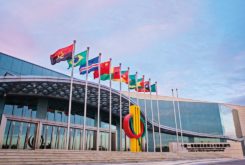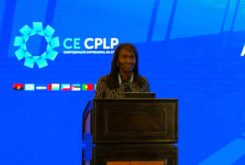The Greater Bay Area (GBA) will be the greatest challenge Macao will face moving forward. Almost 20 years after the return of the Portuguese administration to China, the city is now part of the GBA – Guangdong-Hong Kong-Macao initiative – details of which Beijing is expected to announce soon.
The GBA leverages the economics of agglomeration: the greater the concentration of related business interests, the lower the cost of production. It increases competition in the supply chain, encourages greater specialisation and division of labour, and makes it easier for employers to locate the best professional for the job.
The plan to be released soon outlines the target, developmental direction, and major tasks of the Greater Bay Area, which comprises Macao, Hong Kong, and nine cities in the Guangdong province: Guangzhou, Shenzhen, Dongguan, Foshan, Zhuhai, Zhongshan, Jiangmen, Huizhou, and Zhaoqing.
With an area of 56,000 sq km and a population of almost 68 million, the GBA accounts for less than one per cent of China’s land and only about five per cent of the population. Yet in 2016, they contributed around 7.1 per cent to the national economy with a combined GDP of US$1.74 trillion. Such numbers – achieved without the full benefits of integration and coordination promised by the GBA – bodes well for the area’s future.
The central government wants to create a cluster of cities with a strong sense of economic, cultural, political, and social identity. The Greater Bay Area, concentrated in the Pearl River Delta of southern China, is one of 19 planned city clusters. Only two others – the Yangtze River Economic Belt in the east and the Beijing–Tianjin–Hebei area – are actively being developed.
According to the official timeline, a cluster of metropolises in the Greater Bay Area will be almost entirely established by 2020. Progressing by 2030, it will become a global first-class bay area and city cluster, as well as a global advanced manufacturing, innovation, financial, trade, and international shipping centre.
Over the last few months, Macao Chief Executive Chui Sai On and other high-ranking officials have been visiting the nine cities of the Guangdong province that will be part of the GBA. The main reason for these visits is to seek co-operation opportunities between Macao and the cities. Chui also went to Beijing to meet the vice-premier in charge of the Greater Bay Area with whom he discussed Macao’s role in the initiative.
The role of Macao as a platform in the relations between China and the Portuguese-speaking countries has also been included in the official message during recent visits to Portugal and Brazil by a high ranking mission of Macao headed by the secretary for Economy and Finance, Leong Vai Tac.
Businessmen told CLBrief that for Macao to benefit from these initiatives, the local government will have to change and adapt many of its policies to keep up with the evolving times. The Macao Trade and Investment Promotion Institute, the government department that works on this area specifically, must re-think its strategies and direction to make sure it doesn’t fall behind.
“Macao government institutions do not need to do more. What they need is to do less but better and the example of what other cities of the Greater Bay Area is a great example. Just follow those that know how to look at the future and the digital era,” said a diplomat from a Portuguese-speaking country.
One of the major problems in Macao is its anti-foreigners strategy, where the government insists on using local professionals, even when they are not qualified enough or have the skill sets required for the job. For Macao to have a prosperous future, it is necessary to bring in professionals from China and abroad to grow, train, and develop a healthy competitive industry.
The GBA also presents a great opportunity for the Portuguese-speaking countries that want to find partnerships and investors in China. Ho Hau Wah, the previous Chief Executive of Macao and Vice Chairman of the National Committee of the Chinese People´s Political Conference of China also emphasized this during a speech in Lisbon last month.
When China launched the Forum Macao 15 years ago, the Greater Bay Area had not been launched; hence, it was not within its priorities. Today, Forum Macao must re-think its direction and place more efforts in the GBA region where entrepreneurs from the Portuguese-speaking countries and SMEs can potentially find business partners and opportunities.
Diplomats expressed that the Forum Macao under Xu’s new leadership has a new impetus for modernization but also said that it’s up to the Portuguese-speaking countries’ delegates, represented in the institution, to innovate and bring suggestions and proposals to the table.
By 2020, Macao will have a new government term which will have renewing the gaming concessions as a domestic priority, but above all, the government must make sure it doesn’t lose out on the GBA initiative and all the opportunities it holds.



